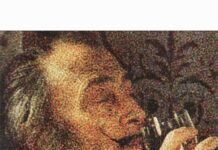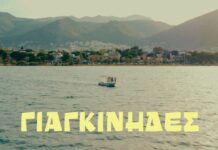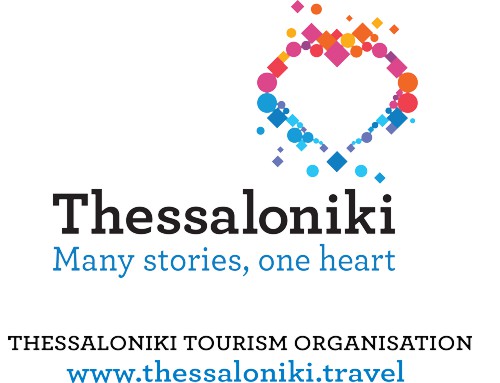Επιμέλεια: Εύα Πετροπούλου Λιανού
Looking for a choice. Question seven
Coercion does not always produce the best results.
Mark Levy, from The First Night
So will such a trend in art be natural or forced?
After substantiating choism and identifying its features, as well as some of the difficulties that it will face, there remains an equally simple question of what will distinguish such a direction in the real world from that described in this article. Will it have a living continuation not related to the reasoning of one person (in this case, the author)?
As a consequence, this article will be the most personal and distinctive of all, as it will be reduced to an analysis of my actions and refer to me, as well as the author of the articles, and the author of choism. However, I believe that at the time of writing, no one in the world can give a better justification and prediction for choism, since it is obvious that its future is in my hands.
To continue, one more question needs to be answered: What is a manuscript (publication) and is it material?
Obviously, both a paper manuscript and a virtual one (file, post), and even a thought are all material, that is, they have a physical carrier and, regardless of content, they exist simply as an object or a body.
In this sense, choism already has its own base. Even at the time of writing this article, the previous ones have already been published in magazines, on websites, in booklets; they have been read and even translated into three languages.
As for the content: the articles are open and quite clear and reasonable (according to the feedback from readers who have read the articles also in different languages). In addition, many questions have already been considered in previous articles and, of course, consent is a matter of choice for everyone, but the answers are presented, argued and accompanied by examples.
However, even after all these considerations, the question of the naturalness of art as a whole remains open.
It is unlikely that a plowed field or an orchard planted and ennobled by man are absolutely natural products. In them, in the very fact of their existence in the form in which they are, a lot of work has been invested.
It is the same with art – it is a cultivated field of knowledge (information) transmitted and changed from generation to generation.
Let us turn again to examples from history: impressionism, expressionism, Dadaism or surrealism did not appear in an open field and were not even mined as industrial raw materials. They were brought to life by the ideas, manifestos and works of authors, like-minded people and, as a formative of all this, a great enthusiastic and disinterested work based on the ideals of that era.
It turns out that partly all art is not natural, but forced. Therefore, creative work is often evaluated only as inspiration, but it is rather a dedication of oneself (one’s time and effort) to work: everyday physical and intellectual work, a sequence of actions that connect the past, present and future.
In this case, choism will not be more natural or forced than any other (earlier) movement in art. He came in due time, and these articles and answers to the questions posed serve as evidence of his birth. Let choism be the product of a work forced to move forward thought, as a natural continuation of what was created earlier, and the universe itself.
The question of the popularity of choism and its fate is also difficult and unpredictable. Usually, society, and even humanity, perceives everything new with distrust. However, in the 21st century, people are as dynamic as ever and prone to experimentation and trying new things. Perhaps, with such a formulation, choism will be able to fully satisfy both the most ordinary and the most refined tastes.
In previous articles, I have already spoken about the role of choism in the era of the new Middle Ages; however, there are many controversial points and even contradictions that in their own way make it difficult to sum up the new trend in art. Therefore, we will consider this issue separately in the next article.

































